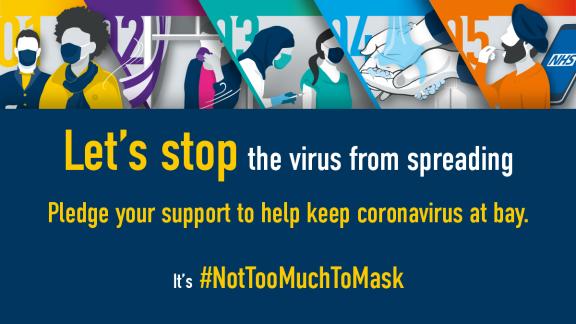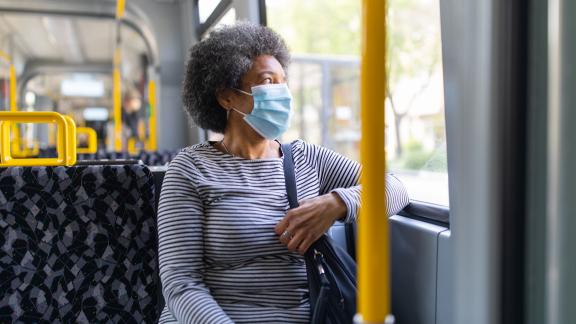National bodies rally together to keep the public safe this winter

On the one-year anniversary of when the first coronavirus vaccine was given in the UK, leading healthcare organisations, charities, unions and medical professionals have joined forces to support the public to make sensible choices that can keep themselves and others safe from infection this winter.
The group, led by the NHS Confederation, has relaunched its #NotTooMuchToMask campaign, which encourages and supports the public to continue to make sensible choices to help stop coronavirus from spreading.
The rally comes at a time when cases, hospitalisations and deaths with coronavirus are rising, winter is expected to be very pressured for frontline NHS services, and when the Government is due to announce next week whether the current national interventions are sufficient against the ‘omicron’ variant.
There are already over 260 confirmed cases of the omicron variant in England, with the Secretary of State informing Parliament on Monday (6 December) that window between infection and infectiousness could be shorter than for previous strains, and that there is evidence of community transmission nationally.
The #NotTooMuchToMask campaign first launched last summer following the Government’s decision to remove the national coronavirus restrictions. At that point (19 July 2021) there were over 3,800 people in English hospitals with the disease: according to the latest available data (6 December), there are nearly 6,000 people in hospital with coronavirus.
The campaign’s five pledges are for people to:
- Wear a face mask, if not exempt
- Keep indoor spaces well ventilated and meet outdoors if you can
- Make sure you get the coronavirus vaccine, including boosters and third doses when advised
- Clean your hands regularly including before and after social contact with those outside your household
- Test regularly, support contract tracing measures and self-isolate when required
Last week, the Government reintroduced mandatory mask-wearing in shops and on public transport in England but not for other indoor settings. Data shows that wearing a mask can reduce up to 80 per cent of virus droplets escaping into the air and therefore potentially infecting other people.
Alongside the NHS Confederation, campaign supporters include the British Medical Association, Academy of Royal Medical Colleges, the Patients Association, NHS Providers, the Richmond Group of Charities, Unison, Health Education England, cancer charities, and other membership bodies.
Matthew Taylor, chief executive of the NHS Confederation, said: “As the threat of coronavirus is still here, it is not too much to ask of people to continue making sensible and cautious choices about how they go about their lives if it can keep themselves and those around them safe.
“Even without the emergence of omicron, this winter was going to be a critical time for the NHS and so, we are keen to support the public in continuing to play a vital part in the national response.
“Wearing a face mask is the most visible sign you can give that you are taking the risks of coronavirus seriously but as set out in our five campaign pledges, there are other simple actions we can all take that can make a big difference. As we mark the anniversary of the UK’s first coronavirus vaccine being given and as the NHS prepares to deliver the significantly expanded booster programme, we are urging everyone to take up the offer of a jab including follow-up boosters and doses, if eligible and when contacted.”
Around 100 million Covid-19 vaccines have been given in the last year and 17 million people have had their booster shots so far. A report from the UK Health Security Agency last month showed that up to September this year, the COVID-19 vaccination programme is estimated to have prevented 127,500 deaths, over 261,000 hospitalisations in people aged over 45 and saved over 24 million infections.
Across over 300 sites in England, the NHS is now gearing up to offer all eligible adults their booster shots by the end of January, following the updated advice from the Government last week.



